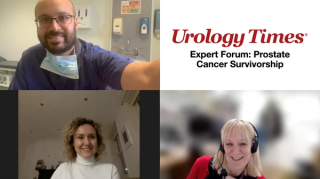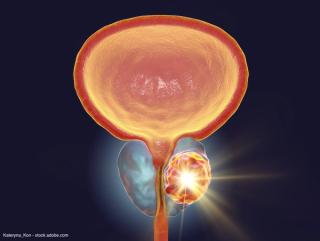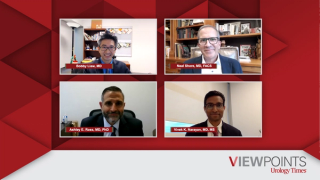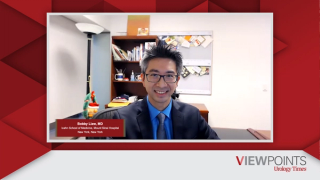
Prostate Cancer
Latest News
Latest Videos

CME Content
More News

The cost of radiation therapy for prostate cancer in the United States varies substantially, and most of the variation is accounted for by factors that are not related to the patient or tumor, according to the results of a study published online in Journal of Oncology Practice (Aug. 11, 2015).

A newly identified subset of prostate cancer biomarkers could help explain why African-American men are more likely than European-American men to develop and die from prostate cancer.

A new study reports no statistically significant increase in the risk of bladder cancer among patients treated with the diabetes drug pioglitazone (Actos), despite previous studies suggesting an association.

With conflicting data, should docetaxel be used up front in newly diagnosed metastatic disease?

Treatment with metformin plus a statin appears to pay huge dividends in high-risk prostate cancer patients, data from a large study show.

Docetaxel (Taxotere) added to standard hormone therapy extended mean survival by about 10 months, according to a recent large-scale study.

“It is a positive thing, because the technology we’re using now is not really very accurate," one urologist told Urology Times.

In this round-up of new urology products and services, learn about an app that helps moviegoers with OAB, a new mesh for sacrocolpopexy, and device/smartphone app that help women with pelvic floor exercises.

Congress doesn’t appear to like very much President Obama’s FY 2016 budget proposal to eliminate funding for Centers for Disease Control and Prevention activities that are focused on education about prostate cancer screening and treatment, as well as tracking disease incidence and mortality data.

ARN-509, a novel oral antiandrogen, was safe, well tolerated, and showed promising efficacy in men with high-risk, non-metastatic castration-resistant prostate cancer (CRPC) in a phase II study, reported Neal D. Shore, MD.

Higher radiation doses don’t confer a survival benefit in men with low-risk prostate cancer, although they do increase survival rates for men with medium- and high-risk cancers, the authors of a new study report.

Despite the strategy’s benefits, many low-risk patients still undergo surgical or radiation treatment, researchers report.

Study findings suggest that high levels of vitamin D could be harmful to the prostate.

With several years now passing since the USPSTF issued its grade D recommendation discouraging PSA-based prostate cancer screening, researchers are reporting conflicting findings on its impact on clinical practice.

We are entering a new era when patients will present not with an elevated PSA but rather with symptoms, writes Henry Rosevear, MD.

Urology Times’ “Best of AUA 2015” report provides a guide to the meeting’s take-home messages in 15 therapeutic areas-an information-packed, condensed summary of the top papers and presentations.

Active surveillance for men with low-risk prostate cancer has made it to prime time. That was the message of Stacy Loeb, MD, who moderated a press conference at the AUA annual meeting, where four studies documented the increasing popularity and safety of active surveillance in managing low-risk disease.

Chemicals in green tea may help inhibit development of prostate cancer in men at high risk, according to results of a randomized, controlled trial.

An experimental assay could reduce the need for prostate needle biopsies, researchers say.

In a phase III study, a drug that blocks production of a protein was associated with a 27% reduction in the risk of death.

A study of patient outcomes 1 year after localized prostate cancer care seems to indicate that the answer is “no.”

Despite the benefit shown in this research, a study author says it’s too early to change practice.

A novel compound used with positron emission tomography imaging can identify foci of prostate cancer not found on biopsy of the prostate pre surgery or on the post-surgery specimen, according to a pilot study presented at the American Association of Cancer Research annual meeting in Philadelphia.

A large prospective study suggests men with male pattern baldness (MPB), particularly moderate MPB, are more likely to die from prostate cancer, compared to men with no MPB.

In this article, Robert A. Dowling, MD, examines some of the practice-related implications of the rapid change in the management of patients with advanced prostate cancer.







